The PNG Peroveta Singers of Canberra
Jodie Kell and Steven Gagau
PARADISEC in collaboration with PNG Peroveta Singers of Canberra and Holy Cross Anglican Church & St Margaret’s Uniting Church held a launch event of Toksave Podcast episodes 13 & 14. The launch was well attended by about 50 people including families, friends, colleagues & Papua New Guinea & Pacific Island community members in Canberra and Queanbeyan on Sunday 12 November at the Holy Cross Church, Hackett ACT. The attendees had very positive experience and enjoyed the event with presentations and performances as part of our PARADISEC community outreach and cultural engagements and supporting our archival-community collaborations.
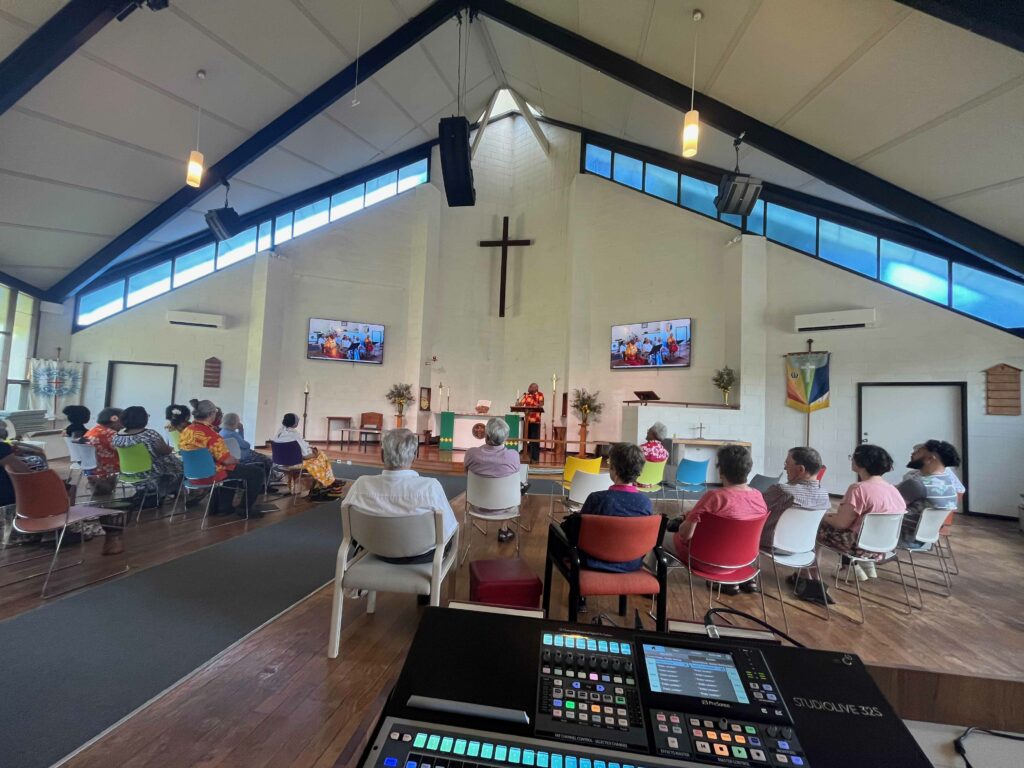
We were welcomed to the Holy Cross Church in Hackett ACT for sharing Peroveta and Sene recordings by the Reverend Doctor Tim Watson
The PNG Peroveta Singers of Canberra was formed in 1999 as a collective diaspora community initiative led by Deveni Temu who continues to be the coordinator of the group. The members are predominately from Central Province, Papua New Guinea as residents and students living in the regions of Canberra, ACT and Queanbeyan, NSW. The group’s motivation is to maintain culture, music and language whilst abroad to feel, share, perform Peroveta songs and Sene dance items connecting the members to people, places where they come from in their homeland.
Peroveta is a type of singing also known as ‘prophet songs’. Due to the influence of Christianity coming from the London Missionary Society and their South Sea Islander missionaries, this form of singing was adopted in the Southern Region provinces of Papua New Guinea and has shaped the Papuan Christian community identity and music through its unique combination of Biblical scriptures, missionary histories and local customs expressed through traditional choral music sung with soaring and interweaving parts. Sene is a Hiri Motu word which means cultural traditional items.
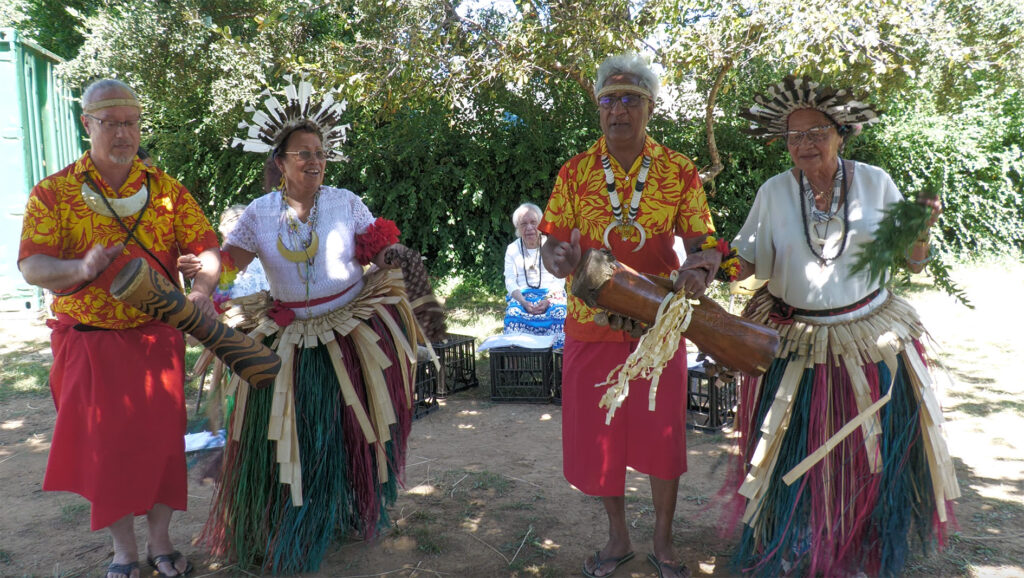
Sene Cultural Dance of Gaire Kitoro performed by (L-R) Tommy Dietz, Theresa Hogg, Deveni Temu, Wari Powell.
The Sene traditional music includes songs, chants and laments of the Central Province which are performed in ceremonies, festivals and traditional practices. The group sings the languages of Hiri Motu, Hula, Keapara, Rigo, Aroma, Marshall Lagoon and Magi-Mailu of the Central Province districts as well as Rarotongan, also known as Cook Islands Māori.
They are responding to the PARADISEC archival collections MG1 and IC1 through creating new recordings, sharing cultural knowledge about the songs leading to the creation of a new collection PC2. The MG1 collection was recorded in the late 1950’s and 1960’s by Murray Groves, an anthropologist whose 1956 PhD awarded by the University of Oxford was a comparative study of three Motuan villages, Boera, Porebada and Manumanu, near Port Moresby. His research was eventually published as a book in 2011 as ‘The Motu of Papua: tradition in a time of change’. The IC1 collection consists of recordings made by Ian Campbell in Tubuseria Village, Central Province in 1969. Ian was participating in the National Union of Australian University Students “Village” scheme operated by the colonial Australian Administration in the late 1960’s where Australian university students stayed in Papua New Guinean villages. Ian’s recordings include church music, and traditional music known as ‘sing-sing’.






Images taken by Ian Campbell in Tubuseria Village in 1969. Available in the IC1 collection
The collaboration with the PNG Peroveta Singers of Canberra is a practical example of the PARADISEC “archival loop” model used in our community outreach which fosters cultural engagement between speaker communities and the archive. We developed this model when co-writing with Amanda Harris, Nick Thieberger and Nick Ward about historical Papua New Guinean recordings in the PARADISEC collection[1]. Coming from an ‘insider-outsider’ perspective as a Tolai man working in the archive, Steven says this approach ensures there is cultural safety, accountability and value adding of archival materials from the past to the present. The Archival Loop focuses on:
- Prioritising Indigenous voices that synthesise knowledge between the archive and communities.
- Connecting and Reconnecting where indigenous peoples with lived experiences and cultural knowledge share on archival materials from the past to present as a form of cultural revitalisation.
- Building Relationships is through recognising that indigenous people are experts of their own cultural knowledge and practices. An “insider-outsider” role in archives and being community members in research and cultural knowledge holder makes long term relationships.
- Enlivening the archive as a means of empowering of indigenous people through their personal and cultural connections which has proven to have emotional re-discovery from archival materials so turning it to be a living archive.
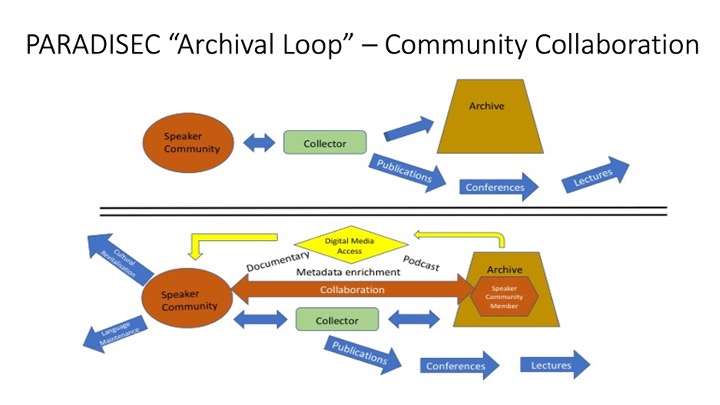
[1] Amanda Harris, Steven Gagau, Jodie Kell, Nick Thieberger, and Nick Ward. “Making Meaning of Historical Papua New Guinea Recordings.” International Journal of Digital Curation 14, no. 1 (2019). https://doi.org/10.2218/ijdc.v14i1.598
The archival loop is evident in the collaboration with the PNG Peroveta Singers of Canberra:
- Group coordinator Deveni Temu was involved in a previous episode of Toksave: Culture Talks which meant he had experience of our workflow.
- Deveni contacted Steven to start a conversation about recording the goup.
- We shared archival recordings from the MG1 and IC1 collections with Deveni.
- We interviewed Deveni for the podcast, he shared his cultural and language knowledge. Archived in the TCT1 collection.
- We filmed and recorded the group performing Peroveta and Senne cultural song and dance. They had prepared explanatory introductions to the songs
- We created the PC2 collection for the recorded materials.
- The group shared the pdf of their songbook with us. Archived in PC2.
- The films were edited and uploaded onto the PARADISEC Youtube Channel showing the full performances. Archived in PC2. Available online.
- The songs were cut into audio excerpts and transcribed in Elan using the songbook. Archived in PC2.
- Interviews, performances, IC1 and MG1 excerpts edited into two podcast episodes. These are available on streaming platforms, the PARADISEC Youtube channel. Archived in TCT1. Available online.
- All materials were copied onto individual flash drives and returned to the group members.
- Launch event held at the Holy Cross Church attended by the group, their families and other Pacifika community and church members. This event included instructional outreach about how to use the PARADISEC archive and access the collections.
- Community members at the event approached us about more tapes, reels and videos they have and wish to be archived.
- The process can now start again!!
We hope you enjoy the Toksave: Culture Talks episodes 13&14 and the extra materials on our Youtube Channels as much as we enjoyed creating them. Log into the PARADISEC archive to explore the PC2, TCT1, IC1 and MG1 collections in the PARADISEC archive.
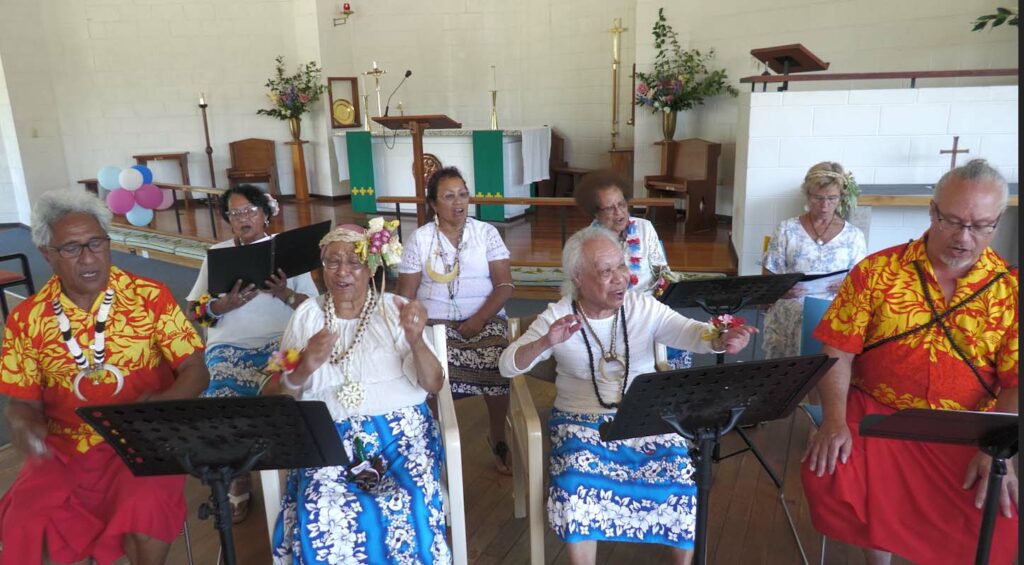
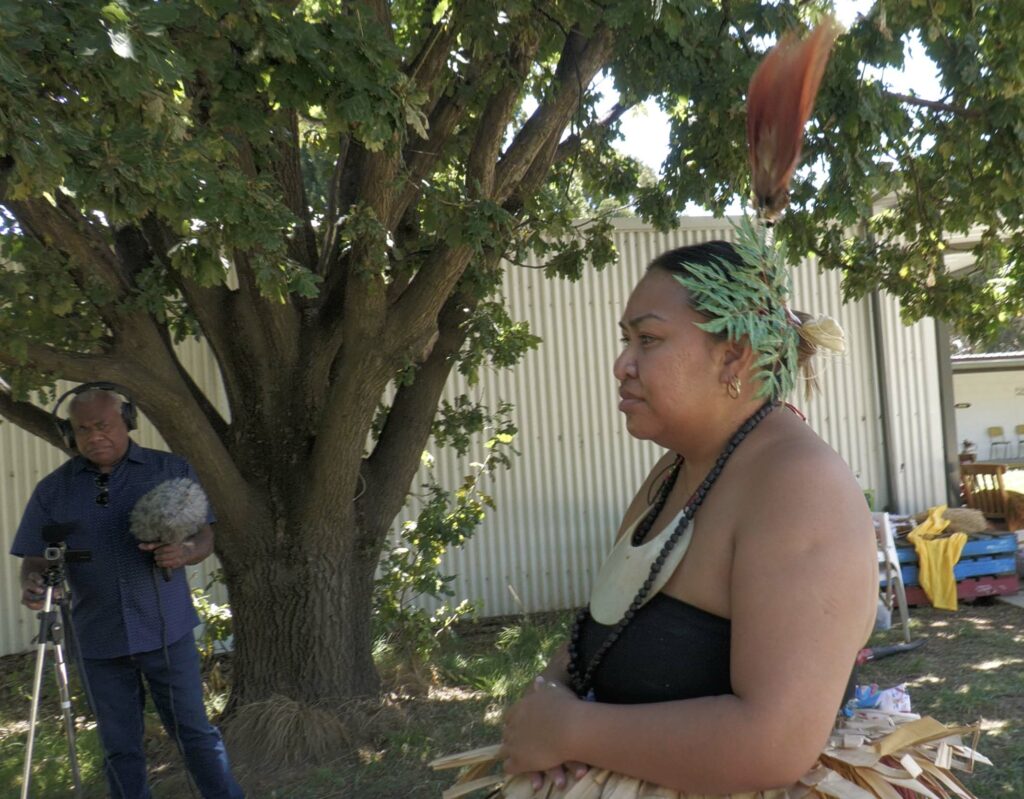
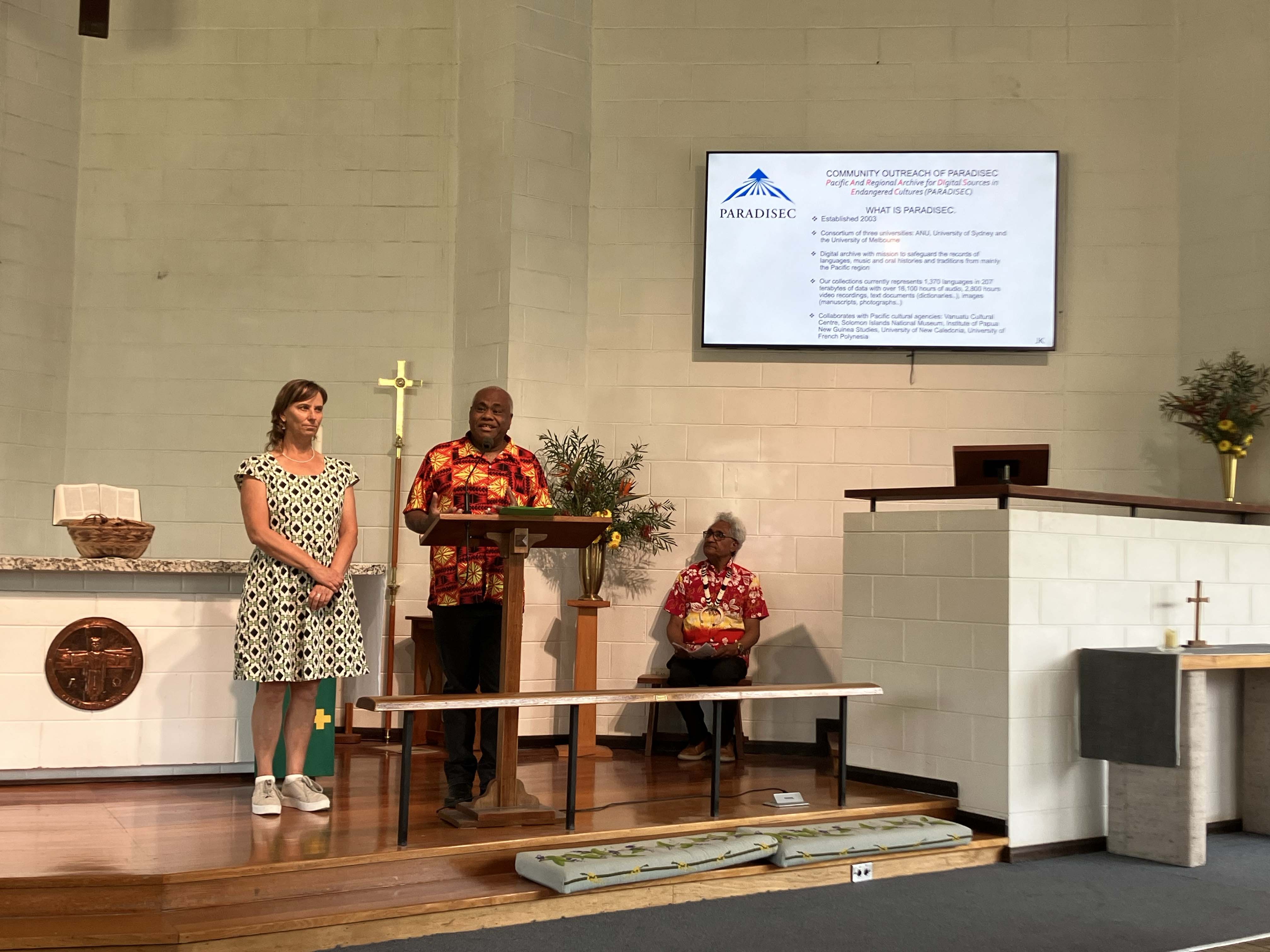
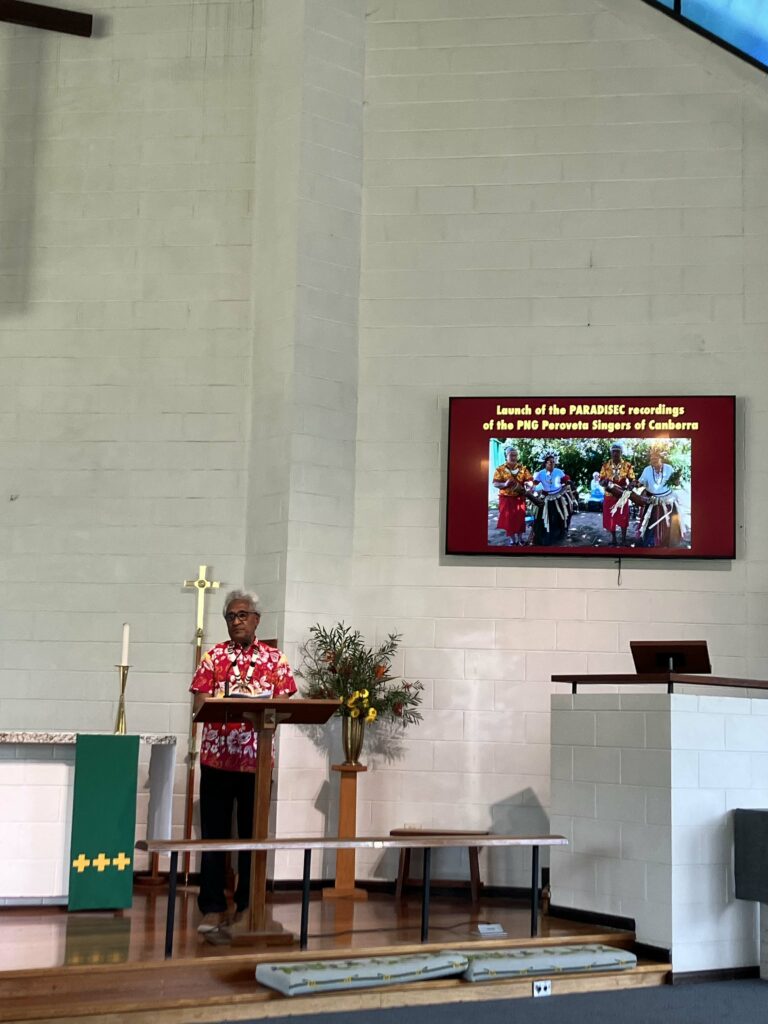
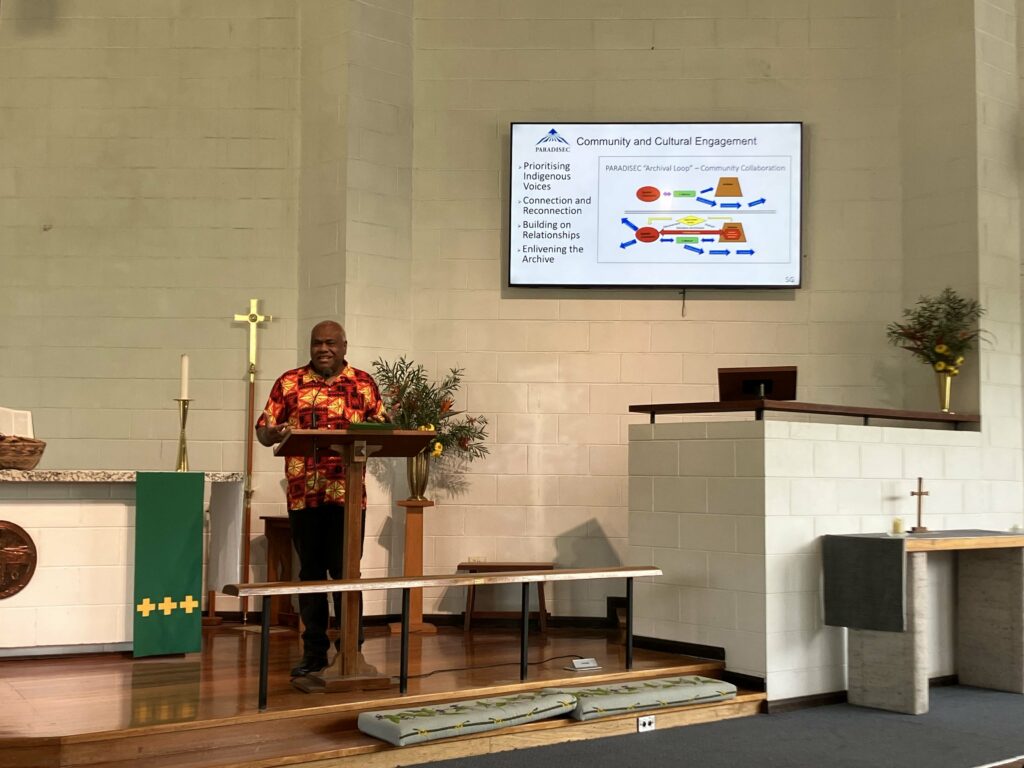
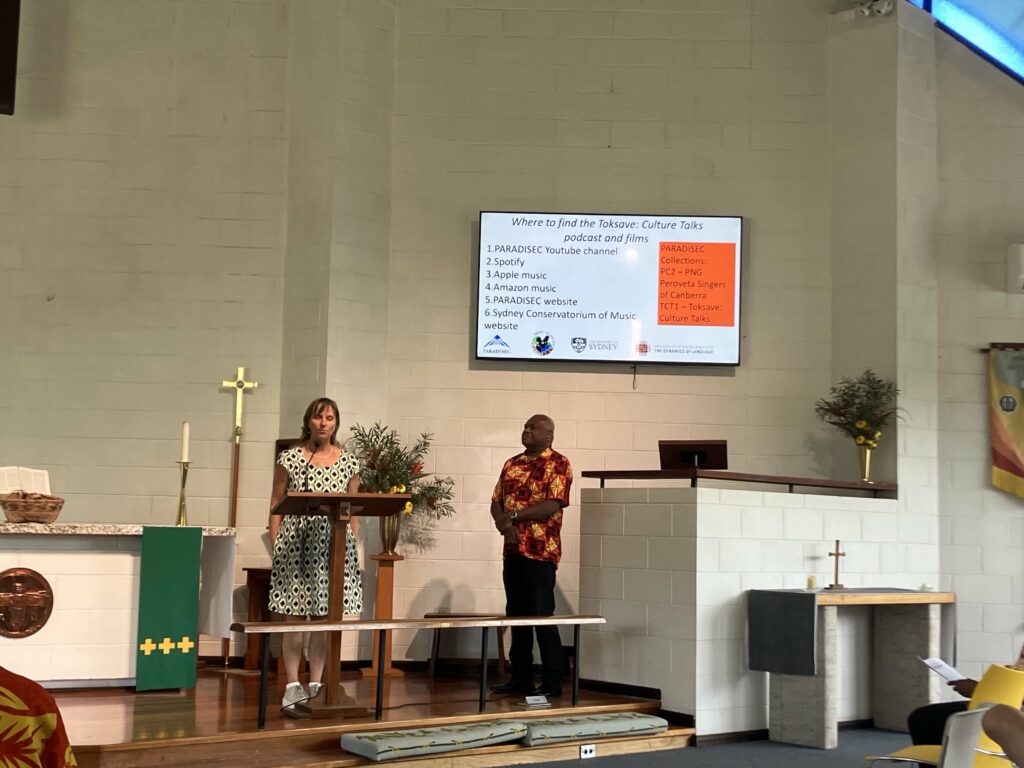
 Follow
Follow
Here at Endangered Languages and Cultures, we fully welcome your opinion, questions and comments on any post, and all posts will have an active comments form. However if you have never commented before, your comment may take some time before it is approved. Subsequent comments from you should appear immediately.
We will not edit any comments unless asked to, or unless there have been html coding errors, broken links, or formatting errors. We still reserve the right to censor any comment that the administrators deem to be unnecessarily derogatory or offensive, libellous or unhelpful, and we have an active spam filter that may reject your comment if it contains too many links or otherwise fits the description of spam. If this happens erroneously, email the author of the post and let them know. And note that given the huge amount of spam that all WordPress blogs receive on a daily basis (hundreds) it is not possible to sift through them all and find the ham.
In addition to the above, we ask that you please observe the Gricean maxims:*Be relevant: That is, stay reasonably on topic.
*Be truthful: This goes without saying; don’t give us any nonsense.
*Be concise: Say as much as you need to without being unnecessarily long-winded.
*Be perspicuous: This last one needs no explanation.
We permit comments and trackbacks on our articles. Anyone may comment. Comments are subject to moderation, filtering, spell checking, editing, and removal without cause or justification.
All comments are reviewed by comment spamming software and by the site administrators and may be removed without cause at any time. All information provided is volunteered by you. Any website address provided in the URL will be linked to from your name, if you wish to include such information. We do not collect and save information provided when commenting such as email address and will not use this information except where indicated. This site and its representatives will not be held responsible for errors in any comment submissions.
Again, we repeat: We reserve all rights of refusal and deletion of any and all comments and trackbacks.